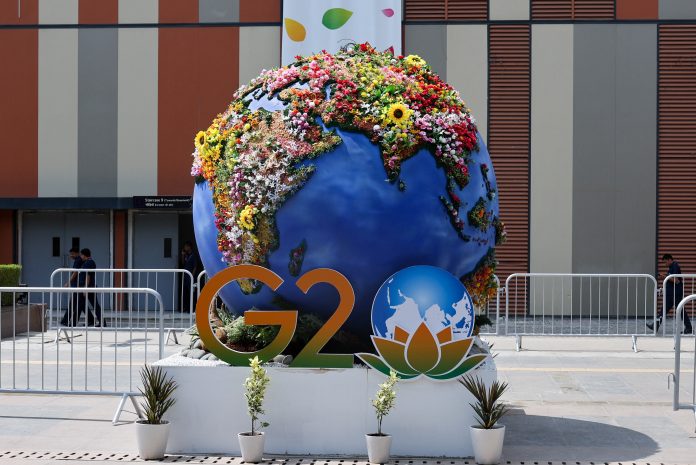The African Union’s annual summit to open on Saturday amid coups in Gabon and Niger and a political crisis in Senegal, setting the stage for the bloc to increase its political clout.
The bloc has long been criticised mainly for its ineffectiveness and lack of decisive action in the face of numerous power grabs.
Ahead of the meeting in the Ethiopian capital Addis Ababa, the head of the African Union Commission, Moussa Faki Mahamat, expressed alarm at the violence that has engulfed many countries, both in Africa and other parts of the world. He also stressed that the jihadist threat in Somalia, “eternal tensions” in the eastern Democratic Republic of Congo, the “terrorist danger” in the Sahel, and constant instability in Libya.
“The resurgence of military coups, pre- and post-electoral violence, humanitarian crises linked to war and/or the effects of climate change are all very serious sources of concern for us,” he told African foreign ministers on Wednesday.
A mini-summit aimed at finding ways to restart the peace process in the DRC opened on Friday on the sidelines of the AU’s main meetings. The agenda is likely to be dominated by coups and the crisis in Senegal, which has been in turmoil since President Macky Sall’s last-minute postponement of this month’s elections.
“I doubt that there will be any strong decisions,” said Nina Wilen, director of the Africa programme at the Egmont Royal Institute for International Relations think tank in Brussels.
According to a senior Palestinian official, Palestinian Prime Minister Mohammad Shtayyeh will attend the summit, while Israeli delegation is not expected as the Israel-Hamas conflict in the Gaza Strip is a hot topic, and Faki called it a “war of extermination.”
Gabon and Niger will also be absent from the meeting in Ethiopia’s capital Addis Ababa after they were suspended last year due to coups. They will join Mali, Guinea, Sudan and Burkina Faso, who are also barred from the summit.
Others are more cordially invited, including UN chief António Guterres and Brazilian President Luiz Inacio Lula da Silva, who are due to speak on the first day.
The bloc managed to avoid a crisis by defusing tensions ahead of the summit over the rotation of the AU presidency for one year, currently held by Comoros President Azali Assoumani.
The succession has long been blocked due to a lack of consensus among the countries in the North African region that will take the post this year, but after months of tense negotiations, Mauritanian President Mohamed Ould Ghazouani is expected to take the chairmanship. The episode highlights divisions within the pan-African organisation, although it is seeking a stronger voice in the G20 group, which it joined in September.
But analysts say the AU must act quickly to build consensus on how to deal with the G20, which accounts for more than 85 percent of global GDP, because by joining the G20, “the AU will become a player in international politics,” said Paul-Simon Handy, regional director of the Institute for Security Studies in Addis Ababa.
Solomon Dersso, founding director of the think tank Amani Africa, agreed, but warned that the process “won’t be… easy.”
“Just like the European Union, this would require making constant negotiation and compromise,” he said, adding that “It becomes more difficult when you have 55 countries with diverse interests, but it’s not impossible.”
But the AU’s room for manoeuvre could be limited amid the deepening security crisis facing the continent, as Africa suffers deadly violence in the Sahel region, fighting in the Democratic Republic of Congo that has sparked regional diplomatic tensions, and conflicts in Somalia and Sudan.
“Member states are looking inwards, closely protecting their sovereign prerogatives rather than investing in collective security,” the International Crisis Group said in a briefing note ahead of the summit.
Another major topic of discussion is expected to be the AU’s move to fund most of its budget from African states rather than the foreign donors it now depends on.
In December, the UN Security Council adopted a resolution to fund AU-led peacekeeping missions, but limited it to 75 percent of the budget.
